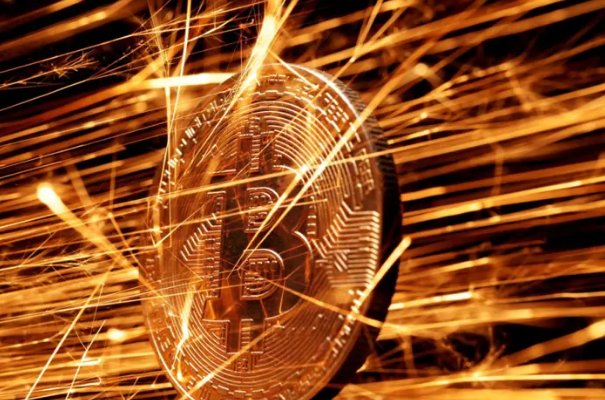Russian President Vladimir Putin has signed a set of laws providing a regulatory framework for cryptocurrency mining operations in Russia.
Although the legislation defines key legal concepts in crypto mining, industry experts caution that Russia has not fully “legalized” crypto mining. Instead, they see the measures as a framework establishing new controls and restrictions for the sector.
The first law, signed in August, described key industry terms like mining and mining pools and imposed registration and reporting requirements for mining businesses. The law also prohibits foreign entities from mining in Russia and allows the government to restrict mining in certain regions.
The second law, which Putin signed on Oct. 25, outlines mining activity regulations and rules for digital currency circulation. While the law also comes into effect on Nov. 1, 2024, its core sections are set to come into force in March 2025.
“No clear regulations are introduced”
The signed laws have not fully legalized crypto mining in Russia, according to Nikita Zuborev, chief analyst at the local exchange directory BestChange.
“The full legalization of mining has not happened. Instead, it can be said that some norms have been established by law that simplifies control over industrial mining,” Zuborev told Cointelegraph in an interview.
Industrial crypto mining facility by Russian data center provider BitRiver. Source: BitRiver
Zuborev noted that the framework establishes the rights and obligations of companies and regulatory authorities, including electricity consumption standards and tax rates. However, specific tax figures and energy restrictions will be determined by responsible ministries, he said, adding:
“No new clear regulations are introduced, it only paves the ground for more precise taxation. Earlier, all miners paid at the rate of hosting providers, and now payment in correlation with the mined amount is introduced.”
Maria Agranovskaya, an attorney specializing in international law and fintech, echoed Zuborev’s comments. She pointed out that Russia’s largest mining companies had been operating without breaking any laws prior to the legislation.
“I can’t say that the act [law] legalized mining. Though, of course, more clarity with legal terms was very useful,” Agranovskaya told Cointelegraph.
Mining is no longer in the “gray area”
The new laws have filled in the “regulatory vacuum,” according to Anna Maximenko, a lawyer and partner at KKMP Legal.
Before the introduction of the laws, miners in Russia operated in a “gray area,” as there was no ban on mining. Still, the lack of regulation raised questions about the type of miners’ economic activity, electricity charges and others.
Russia is among the leading global jurisdictions by the share of the Bitcoin hashrate. Source: CBECI
“On one hand, miners had freedom due to the lack of regulation; on the other, they faced operational challenges,” Maximenko said, adding that mining in Russia has been widespread since 2017.
Mining restrictions and prohibitions
While setting legal and regulatory basis for crypto mining operations, the new crypto mining laws in Russia introduced a number of restrictions such as prohibiting foreign persons from mining in the country.
The law also provides that mining will not be allowed to any entities or individual entrepreneurs engaged in the power industry, such as power transmission, power generation, power sale and purchase or operational power dispatch management, Maximenko noted.
Anna Maximenko is a lawyer and partner at KKMP Legal. Source: KKMP
The legislation also allows the government to ban mining activities in regions vulnerable to power supply shortages.
“The list of such regions is expected to be approved shortly,” Maximenko said, adding that currently, there is an understanding that the Far East, South-West Siberia and Southern part of Russia will be on the list.
An earlier law from August also prohibits public advertisements for crypto-related services. It states:
“In the Russian Federation, it is prohibited to offer digital currency to an unlimited number of persons, as well as goods (works, services) for the purpose of organizing the circulation and (or) circulation of digital currency.”
Although crypto advertisements are banned, the government permits users to buy, store and sell cryptocurrencies through exchanges and wallets. However, no crypto exchange is officially registered in Russia at this time.
How to legally sell mined coins?
The new mining laws in Russia do not provide clarity on legal methods of selling digital assets acquired through mining, as this aspect was not covered in the legislation.
“It may be covered in the regulatory acts which will be adopted as a part of the implementation of the law,” Maximenko told Cointelegraph.
Related: Russia’s Bitcoin, AI play with BRICS is ‘game theory’ in motion: Analyst
The lawyer admitted that there is still legal uncertainty with respect to digital currency transactions, as there are no explicit prohibitions on crypto transactions. At the same time, such transactions are not expressly permitted.
“This may justify a conservative approach that such transactions will be permitted only under the pilot projects,” the lawyer stated, adding:
“The correct interpretation will evolve as the practice of application of the law develops.”
The new crypto mining regulation developments in Russia come a few years after the adoption of its first cryptocurrency law, “On Digital Financial Assets,” in 2021. The law provided a legal status to cryptocurrencies like Bitcoin (BTC) but prohibited the use of such assets as a payment method.
Magazine: We took an ETHSafari to see how crypto is working out in Africa








